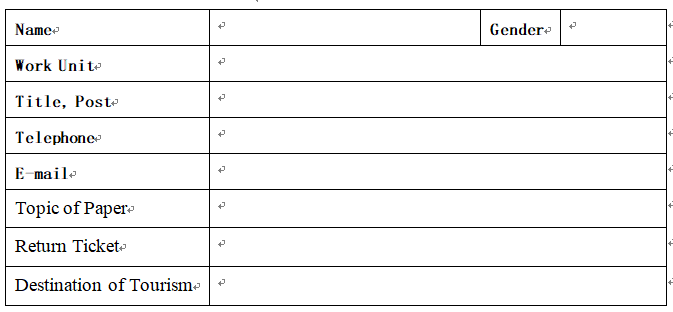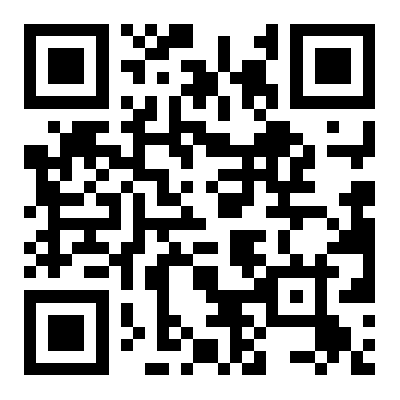网站首页 >> Call for Papers >> CallforPapers
Call for Papers
Call for Papers
CALL FOR PAPERS
First International Symposium on Mario Bunge's Thoughts
First International Huaguang Information Forum
Sept. 20-22, 2021; Wuhan, China
Huaguang Academy of Information Science at Wuhan
http://www.hgacademy.cn/ (The English Column is “Call for Papers”)
Mario Bunge is an internationally renowned theoretical physicist and philosopher of science and systems. He devoted all his life to the establishment and development of "Scientific Realism". Sept. 21, 2019 is Mario Bunge’s 100th birthday. Huaguang Academy of Information Science at Wuhan,for short, “Huaguang Academy”, which was approved by Wuhan Municipal Government on Jan. 18, 2019, held a national meeting for its establishment and for the study of Mario Bunge’s thoughts in Sept. 20-22, 2019 in Wuhan, China.
Huaguang Academy’s Legal Representative and its President, Zongrong Li, a professor at Hubei University, was a postdoctoral student of Bunge (2007-2008); he studied Bunge’s two works (Emergence and Convergence and Social Sciences under Debate) in Montreal, Canada. He believes that Mario Bunge’s thoughts are the peak of contemporary materialism. Zongrong Li and his friends translated the two books into Chinese and the Chinese version of the books is published by People's Publishing House in 2019. A systematic study of Bunge's academic thoughts is a long-cherished wish of international academia for many years. Therefore, Huaguang Academy initiated the First International Symposium on Mario Bunge’s Thoughts in September 20-22, 2021 in Wuhan, China, and prepared for the establishment of the International Society for the Study of Mario Bunge’s Thoughts together with friends who love Bunge’s ideas.
After Mario Bunge’s postdoctoral training in McGill University, Zongrong Li has applied Bunge’s main theory, i.e., Emerging Systematic Materialism to solving the problems in the field of information science, and he found that studying the information phenomena required some special views, such as space-time-view, sports-view, and world-view. When Zongrong Li applied these views to the investigation of Psychology, Jurisprudence, etc., then some new disiplinary fields have emerged, such as Psychological Informatics, Legal Informatics, etc. We will report all these outcomes to Professor Bunge and listen to his criticism. Then, we report these results to the participants in the First International Huaguang Information Forum and discuss with them.
I. Themes of the International Symposium on "Mario Bunge’s Thoughts"
1. Bunge's Basic Philosophy
2. Bunge's Scientific Realism
3. Bunge's Philosophy of Physics (especially Causality)
4. Bunge's Philosophy of Social Sciences
5. Bunge's "Philosophy of Technology"
6. Bunge's "System Philosophy" Thought
7. Bunge's "Logic" Thought
8. The Spread, Research and Impact of Bunge's Thoughts in the World
9. Other Topics Interested by Researchers
II. Themes of the First International Huaguang Information Forum
1. Basic Concepts and Theories of Information Science
2. Space-time-view of Information Phenomena
3. Sports-view of Information Phenomena
4. World-view of Information Phenomena
5. Material System and Information System
6. Material Emergence and Information Emergence
7. The Disciplinary Informationism of the Humanities and Social Science
8. Psychological Informatics, Legal Informatics, etc.
9. Other Topics Researchers Interest in
III. Meeting Time, Place, and Language
Meeting Time and Place: 20-22 September 2021; Wuhan, Hubei, China.
Conference Language: English.
IV. Conference Size and Registration Fee
Conference Size: about 80 people.
Registration Fee: 1200 RMB for Chinese scholars, and 200 US dollars for overseas scholars. The student fee is half price.
The conference will arrange the unified accommodation. The participants should pay for personal transportation, accommodation, and tour fees.
V. Format and Submission Time of Conference Papers
Paper Format: paper title; author and work unit; content abstract; keywords; author's brief introduction; paper body (including introduction, body, conclusion, acknowledgements, references, etc.).
(Chinese Paper should be attached by English translation of the Title, Author and Unit, Content Summary, and Key Words.)
Paper submission method: submit papers in English to the conference via the conference contact e-mail.
Paper Submission Time: (1) "Meeting receipt" (attached to this call for papers) and the Title and Abstract of the paper should be submitted before December 15, 2020. (2) The full paper will be submitted by February 15, 2021.
(An Explanation: The publishing houses in China almost are busy at preparing textbooks for new term of primary schools, middle schools, and universities in July and August, so our Committee of Editing should complet the manuscript edition from February 15 to March 15, 2021.)
VI. Editing and Publishing of the Conference Papers
Editing of the conference papers: The manuscripts finally edited by the Conference Committee of Editing and Publishing should be submitted to the Wuhan University Press on March 15, 2021;
Publication of the conference papers: A book of the participants’ papers should be published by the Wuhan University Press before September 15, 2021.
VII. Meeting Contacts
Professor Zongrong Li: Mobile, 13407127575; E-mail, zrli@hubu.edu.cn
Professor Chengfang Li: Mobile, 18986260508; E-mail, rubie521@qq.com
VIII. Organizer and Co-organizers of the Conference
Conference Organizer:
Huaguang Academy of Information Science at Wuhan
Conference Co-organizers:
Institute of Developmental and Educational Psychology, Wuhan University;
Beijing Printing College
National (Regional) Research Center, School of Foreign Languages, Huazhong University of Science and Technology;
Research Center of French Culture, School of the Humanities, Huazhong University of Science and Technology;
Department of Psychology, School of Education, Hubei University;
Jiaying College;
Association of Old Professors, Hubei University.
IX. Format of References for English Papers
1. Monographs, theses, dissertations and reports
---- [serial number]. The principal responsible person(s). Title of literature. Place of Publication: Publisher, Year of Publication. Start and stop pages (optional).
Example:[1] Day, C., Veen, D.van, & Walraven,G. Children and youth at risk and urban education. Research, policy and practice. Leuven/Apeldoorn: Garant. 1997.
2. Journal articles
---- [serial number] The main responsible person(s). Title of literature. Title, Year, Volume (Issue): Starting and ending page number.
Example:[2] Driessen, G., & Van der Grinten, M. Home language proficiency in the Netherland: The evaluation of Turkish and Moroccan bilingual programmes-- A critical review, Studies in Educational Evaluation, 1994, 20(3):365- 386.
3. The extracted literature in the paper collection
---- [serial number] The main responsible person(s), The titles of the literature extracted. The primary responsible person(s) of the original document (optional). The title of the original document. Place of Publication: Publisher, Year of Publication. The starting and ending pages of the literature extracted.
Example:[3] Driessen, G., Mulder,L., & Jungbluth,P. Structural and cultural determinants of educational opportunities in the Netherlands. In S.Weil (Ed.),Root and migration in global perspective. Jerusalem: Magnes Press.1999. pp.83- 104.
4. Newspaper articles
--- [serial number] Primary responsible person(s). Title of literature. Name of newspaper, date of publication (edition).
Example:[4] Lgnatieff, M. Keeping an old flame burning brightly. The Guardian, 1998- 12- 20(12)。
5. Electronic documents
--- [serial number] Primary responsible person(s). Title of electronic literature. The origin or available address of electronic literature, Date of publication or update.
Example:[5] Baboescu, F. Algorithms for fast packet classification. http://wwwlib.global.umi.com/dissertations/preview/3076340,2003.
X. Visiting Tours after the Conference
In China, there are ten famous tourist attractions. (1)The Great Wall: “He who does not reach the Great Wall is not a good man.”
(2)The Palace Museum: “Xi Jinping introduced the history of the Palace Museum. Trump marveled at the magnificence of rich Chinese traditional culture.”
(3)The Summer Palace: “A collection of the royal gardens of the past is the most complete and largest imperial garden in China.”
(4)Guilin Landscape: “Clinton visited China, and finally came to the pure natural scenic spot of Guilin, the Lijiang River.”
(5)Hangzhou West Lake: “West Lake, beauty is in the West Lake”.
(6)Suzhou Garden: “Famous overseas since the Five Dynasties. Later, traveler Marco Polo, who traveled to China, defined the word "paradise on earth" as a eulogy.”
(7)Huangshan Landscape: “Huangshan is a sea of pines and stones. Strange pines grow on strange stones. The beautiful scenery is unforgettable.”
(8)Qinshihuang Terracotta Warriors and Horses: “In ancient times, after the slave owners died, slaves were buried with slave owners as funerary objects.”
(9)Zhangjiajie Wulingyuan: “Zhangjiajie belongs to the prototype monsoon humid climate of the middle subtropical mountains, is as beautiful as fairyland.”
(10)Three Gorges of Yangtze River: The news that the scenery of the Three Gorges will no longer exist has boosted the number of visitors to the Three Gorges.
If the participants of the meeting are interested in these ten tourist attractions or some other tourist attractions, we can contact the travel company for a unified reception and arrange the itinerary.
Sept. 30, 2019
Meeting Receipt





